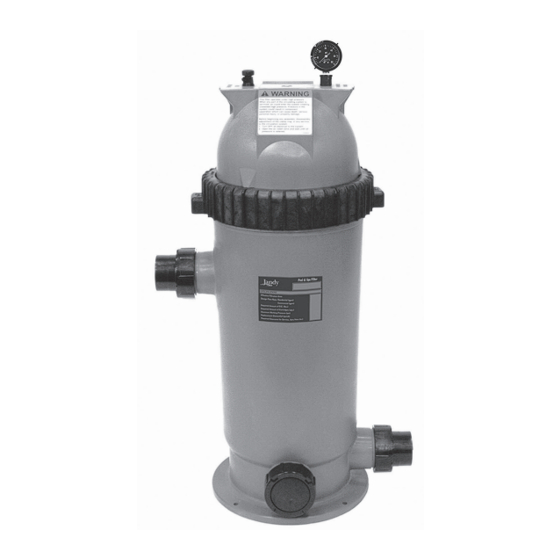Page 6
English
3.2
installing the light Fixture
nOTE
Perform these steps only after the electrical system
requirements are met.
1.
Feed cord through conduit to junction box,
leaving at least four (4) feet of cord at the light
fixture to coil into the base of the light niche, see
Figure 1. The four (4) feet of cord allows the light
to be serviced after the pool is filled with water.
2.
Cut the cord at the junction box, leaving at least
six (6) inches of cord to make connections.
3.
Strip six (6) inches of the outer cord jacket to
expose the three insulated wires. Be careful not to
damage the insulation on the three (3) inner wires.
4.
Install strain relief over cord jacket and connect
all three (3) wires to the corresponding circuit
wires in the junction box. Install the junction box
cover.
5.
Coil the 4-foot length of cord around the fixture
or into the base of the pool niche, and place the
light assembly into the niche.
6.
Engage the retainer tab on the bottom of the face
ring, then pivot the top of the fixture inward and
tighten the special pilot screw.
WARning
Use only the special pilot screw provided with this
underwater light. This screw mounts and electrically
grounds the housing securely to the mounting ring
and wet niche. Failure to use the screw provided could
create an electrical hazard, which could result in death
or serious injury to pool or spa users, installers or
others due to electrical shock.
7.
Fill the pool until the underwater light is
completely submerged in water before operating
the light for more than 10 seconds. Turn on
main switch or circuit breaker, and the switch,
which operates the underwater light, to check for
proper operation. Refer to Section 6, Operating
Instructions.
WARning
Never operate this underwater light for more than
10 seconds unless it is totally submerged in water.
Without total submersion, the light assembly will get
extremely hot, which may result in serious burns or in
breakage of the bulb or lens. This may result in serious
injury to pool or spa users, installers, or bystanders or
damage to property.
Jandy
Pro Series, WaterColors LED Lights
®
section 4. Replacing Jandy Pro
Risk of Electrical shock or Electrocution.
This underwater light must be installed by a licensed
or certified electrician or a qualified pool serviceman
in accordance with the National Electrical Code and
all applicable local codes and ordinances. Improper
installation will create an electrical hazard, which could
result in death or serious injury to pool or spa users,
installers or others due to electrical shock, and may
also cause damage to property.
Always disconnect the power to the color light at the
circuit breaker before installing or servicing the light.
Failure to do so could result in death or serious injury
to serviceman, pool or spa users or others due to
electrical shock.
4.1
Preparing the light Fixture for
Replacement
Verify that the pool meets the requirements of the current
National Electrical Code
and ordinances. A licensed or certified electrician must
install the electrical system to meet or exceed those
requirements before the underwater light is installed.
Some of the requirements of the National Electrical
Code, which the pool's electrical system must meet, are
as follows:
1.
2.
3.
4.
|
Installation Manual
series light Fixture in
an Existing Pool or spa
WARning
(NEC) and all local codes
®
The lighting circuit must have a Ground Fault
Circuit Interrupter (GFCI) for 120 volt models,
and must have an appropriately rated circuit
breaker.
The junction box (or, for 12 volt models, the low
voltage transformer) must be located at least eight
(8) inches above water level, at least four (4)
inches above ground level or pool deck level, and
at least 48 inches from the edge of the pool or spa.
See Figure 1.
The light fixture and all metal items within five
(5) feet of the pool must be properly electrically
bonded to a reliable point of grounding.
The wet niche must be properly installed so that
the top edge of the underwater light's lens is at
least 18 inches below the surface of the water in
the pool. See Figure 1.

